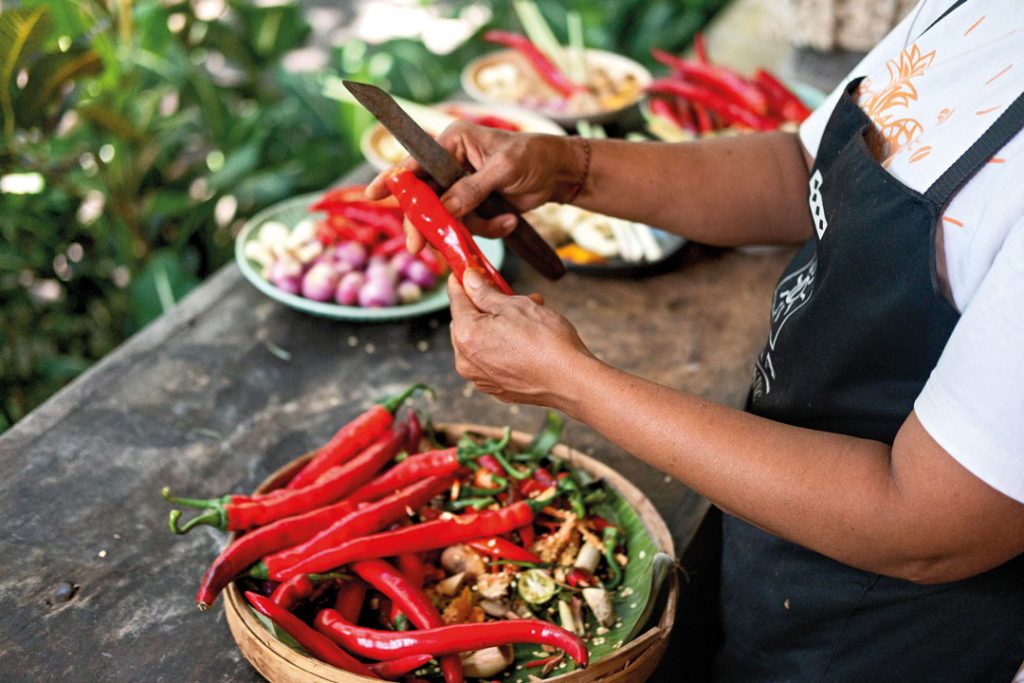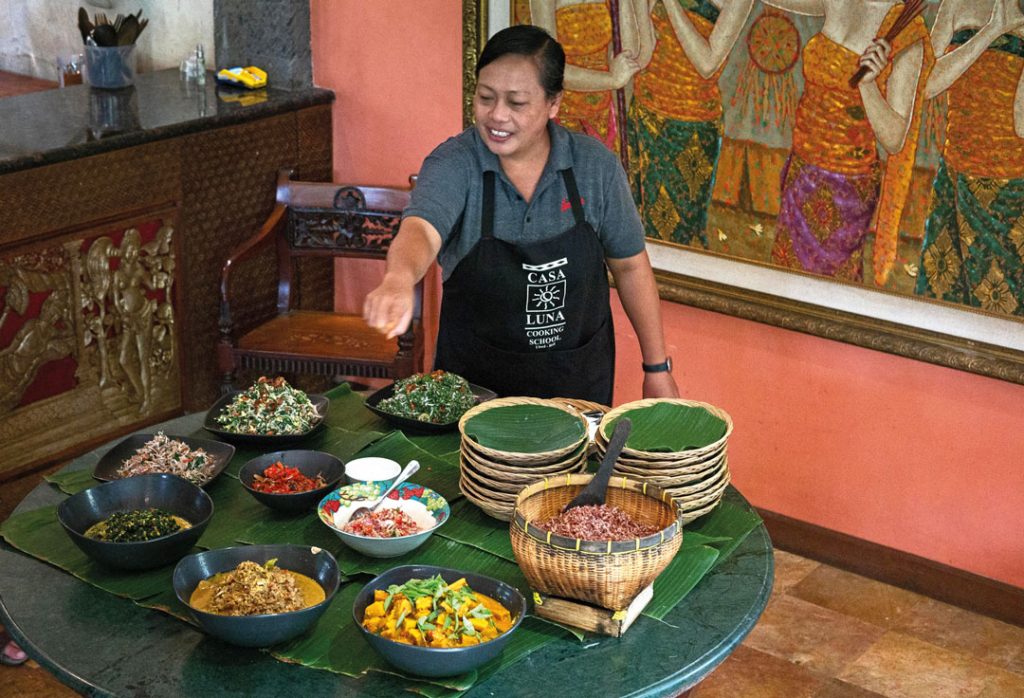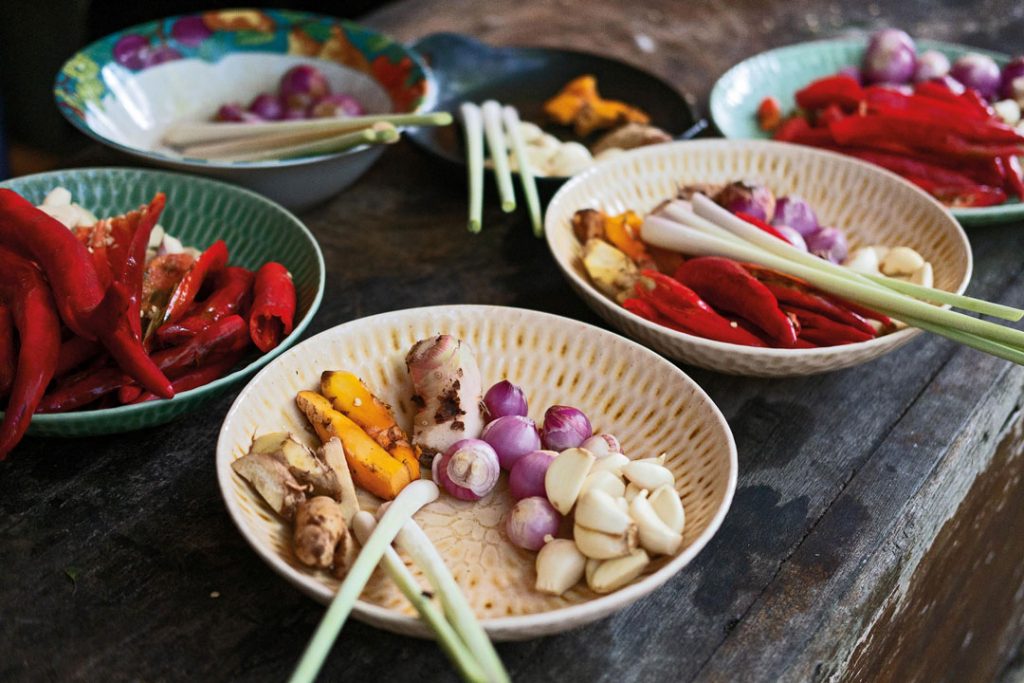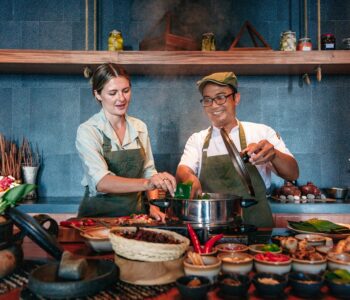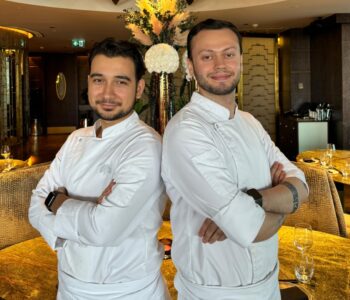Harnessing the healing benefits of vegan food, this cooking class will teach you how to cook healthy, delicious Indonesian dishes as you discover the wellness properties of local ingredients.
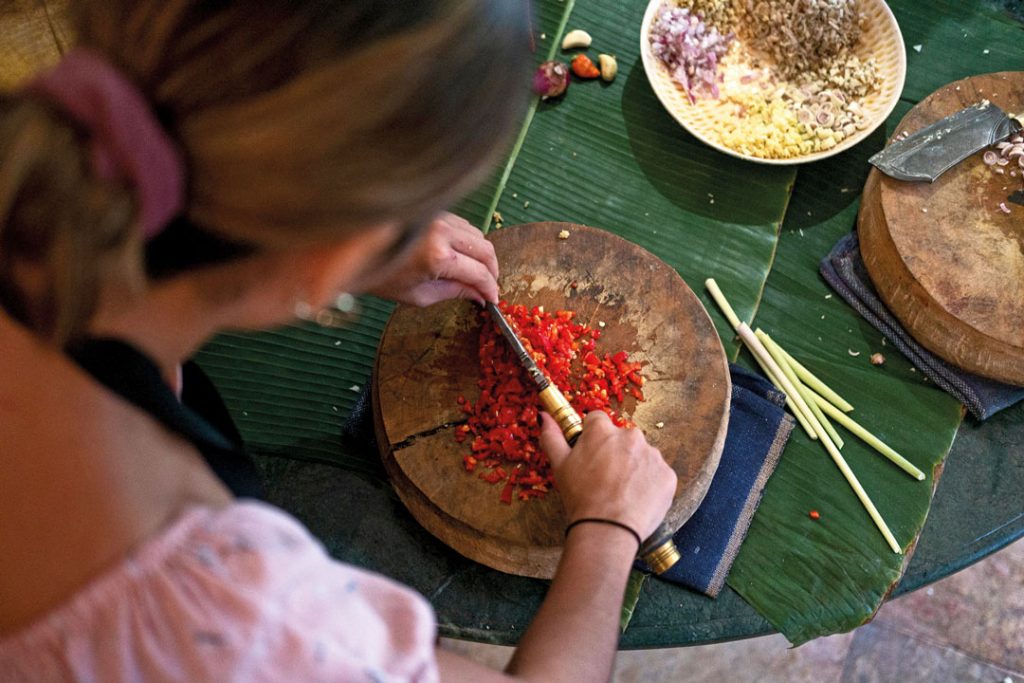
“Let food be thy medicine and medicine be thy food,” says Hippocrates, the ‘Father of Medicine’. Changing what you eat at home can be one of the purest forms of nourishing your health. And for many ailments, the right ingredients for dinner may be just the remedy come morning time. In this wellness issue, we take you to Casa Luna in Ubud to show you how food at home can heal.
The ‘food is medicine’ philosophy has been practised for millennia. Yes, food has medicinal effects; tomatoes, ginger, sesame seeds, even the reliable salt plays a role of maintaining the equilibrium of bodily fluids. Food can be medicine depending on what it is.
To maintain (or attain) a healthy lifestyle through food – inspired by this Balinese cooking class – one must first embrace the idea of a whole foods, plant-based diet. Though we challenge you not to be swayed towards a leafier lifestyle at the end of the class. Vegan dieters will learn which flowering plant, nuts, and shoots contribute to the wellbeing of the body, and get enticed even more.
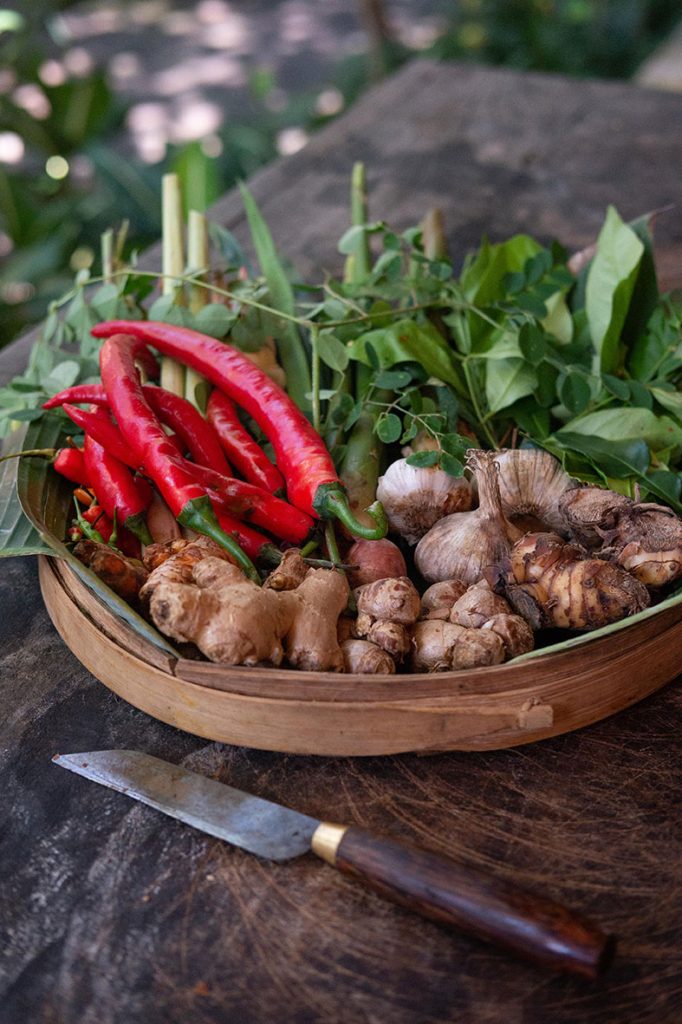
Casa Luna Cooking School is a culinary centre in the heart of Ubud, famed for their fascinating insight into Balinese life and culture through food, cooking, and culinary myths since 1989.
The school was founded by cookbook writer and famous Ubud restaurateur, Janet DeNeefe. At the Saturday ‘Food as Medicine Vegan Class,’ you’ll learn the exotic herbs and spices used in ceremonial and everyday dishes, highlighting the unique healing properties and traditional food knowledge that you can bring home to your kitchen.
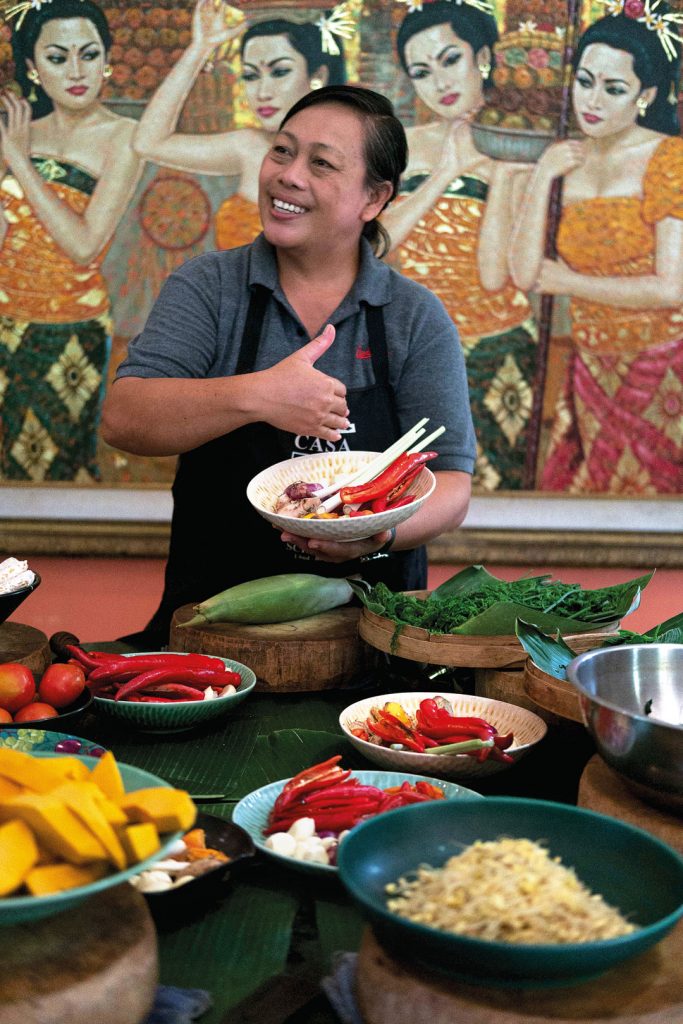
Run by a charming team of ladies, the class is educational, hands-on, and very entertaining. Ibu Yuk De the fun-loving head chef operates with wisdom and glee with 22 years (and counting) of teaching under her belt— she is a natural in the spotlight. She’ll sprinkle every fun fact with endearing life stories to keep the dough rolling.
At half past nine, the morning kicks off with an informative lesson about the dishes you’ll be cooking, accompanied by a chilled glass of homemade hibiscus tea.
Each participant gets a recipe booklet, bearing a detailed glossary of ingredients among other useful information to take home. Some culinary knowledge to indulge in during the class goes beyond cooking techniques.
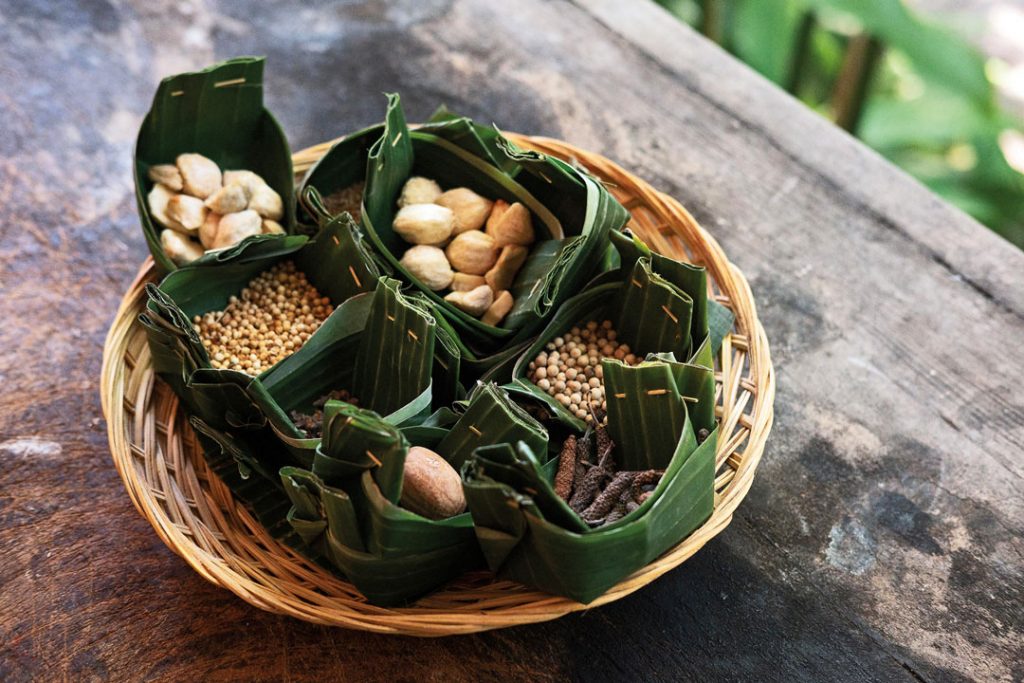
Not a mere thickening agent, did you know candle nut has natural laxative if eaten raw? Or the warm, camphor-like cloves can soothe dry coughs when put under the tongue? You’ll also be more wary the next time you inhale nutmeg, as not only does it aid digestion and prevent discolouration of the skin, the spice has hallucinogens that give you a psychedelic high
Ibu Yuk De will confide in her favourite natural home remedies, such as ‘sleeping tea’ and super juices, for you to jot down. To spice things up, she will pass around each ingredient for you to touch, smell, and taste from rhizomes to chillies; not one grain from the recipe is missed in this introductory session. The cooking class quickly doubles as a jamu (health tonic) class, too.
By the time your notebook is adorned with newfound facts and skills, the ladies begin their chopping, boiling, and other preparations, enough to pleasantly fill the air and flirt with your senses. An aroma straight out of a Balinese paon or kitchen, we would imagine.
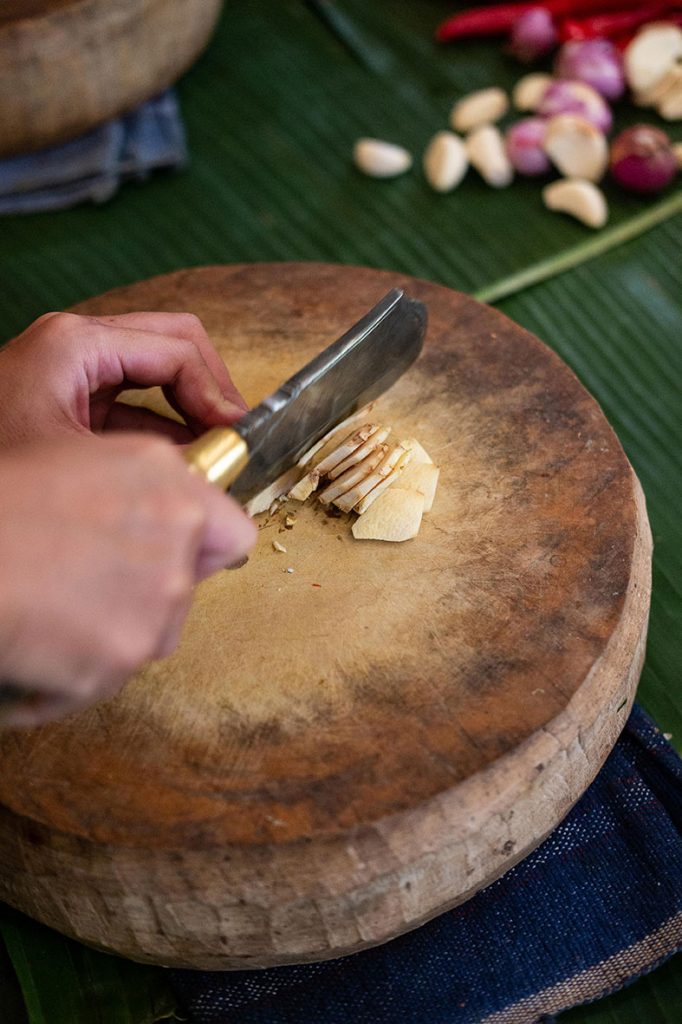
On the menu: bamboo curry, pumpkin curry, sambal goreng, urab, and tempe sambal penyet are served. This is a variety of staple Balinese salads and dressing that make up a plant-based nasi campur.
Large groups will be equally split and assigned a task to blitz the onions and garlics, or the pumpkins and peppers, on an age-old chopping board that you’d be tempted to take home if it didn’t weigh more than your limbs combined.
The actual cooking starts after all ingredients are sliced, diced, and ground. Volunteers can take turns working their magic behind the cooking station. The crowd-pleaser appetiser, tempe sambal penyet, is served first, on a round river-stone cobek (mortar) where the tempe will lie in a bed of fresh tomatoes, chillies, garlic, aromatic ginger (crushed together with sea salt and pepper using the mortar and pestle).
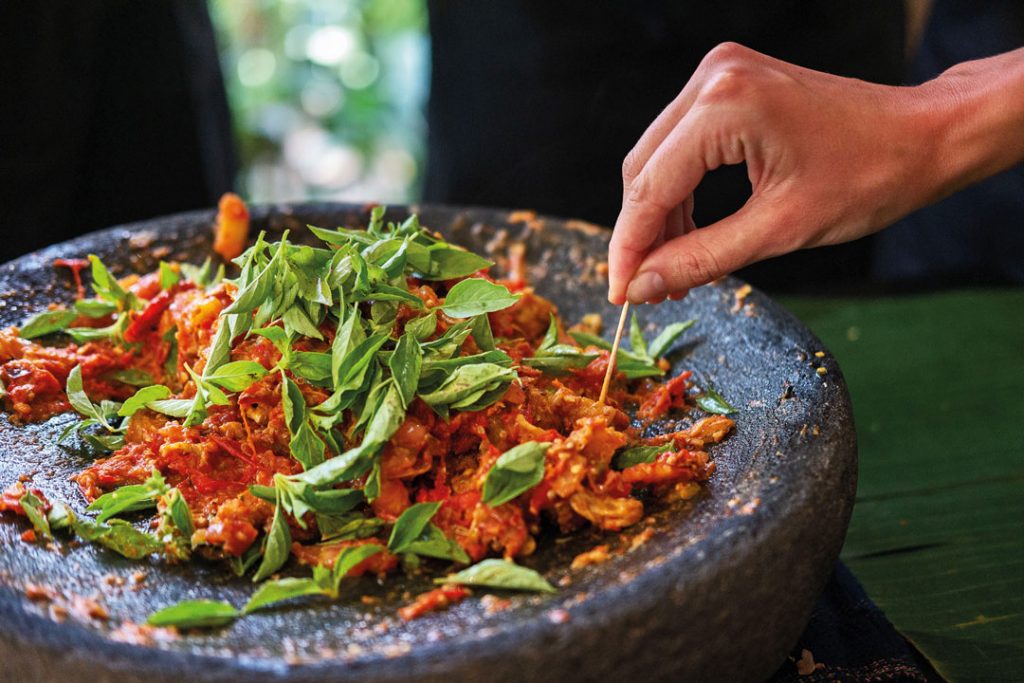
The bamboo curry is made with a refreshing blend of ginger, galangal, lemongrass, turmeric, tamarind and other aromatics to be bathed in coconut milk with kaffir lime leaves and salam leaves, and cooked until tender.
The pumpkin curry is made with a similar paste with cubed pumpkin, and simmered until slightly thickened. Urab, some kind of Balinese salad, is a typical everyday fare made from seasonal greens topped with grated char-grilled coconut.
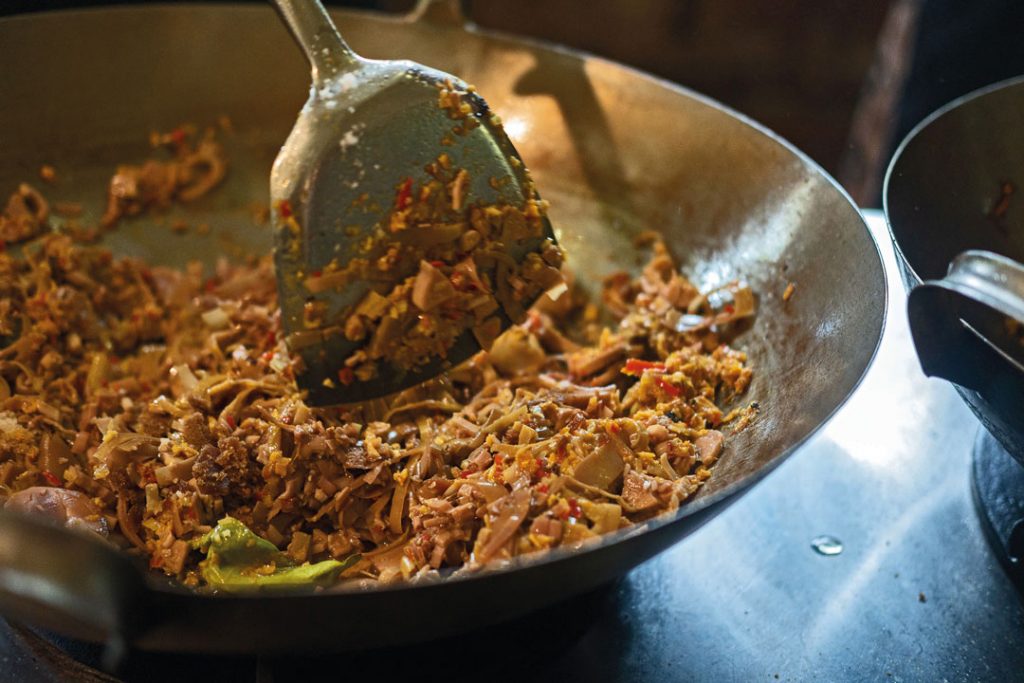
The sambal goreng or fried sambal is an essential part of every Balinese meal not unlike salt and pepper in the west. It consists of red shallots, garlic, red chillies, and sea salt to be deep fried in coconut oil, to wonderfully cohere the flavours of the Balinese soul food you have just learned to prepare.

A Balinese feast is then prepared to enjoy together. The afternoon is wrapped up with a homemade es puter or vegan coconut ice cream with mung beans for dessert.
Casa Luna Cooking School runs classes all week from Monday Focus on Fish to Sunday Twilight Smoked Duck. Their vegan Food as Medicine class is available every Saturday from 09:30 – 13:00. Gourmet food tours are also on offer.
Casa Luna Cooking School
Honeymoon Guesthouse, Jalan Bisma No.5, Ubud
+62 361 973282
casalunabali.com

